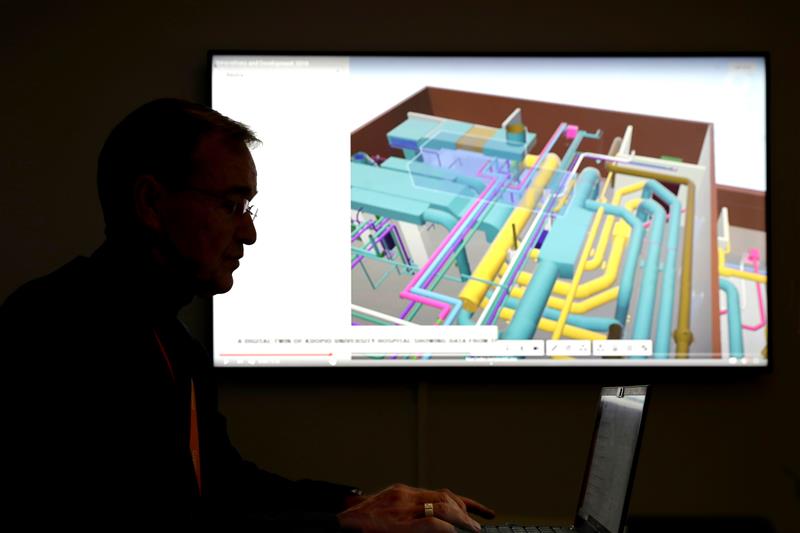New Collective Agreement and Salary Adjustment Model for Senior Salaried Employees in the Technology Industry

Technology Industry Employers of Finland and the Federation of Professional and Managerial Staff (YTN) have approved a new collective agreement. The agreement provides wage increases over a three-year period, and the parties have committed to piloting a new wage adjustment model in the next agreement term.
The wage solution included in the new agreement provides a total of 7.8 percent in salary adjustments for senior salaried employees in the technology industry over three years. The parties have agreed that a new wage adjustment model will be applied in the next round of collective bargaining.
The negotiation outcome was reached on 3 April, and both parties’ boards confirmed their approval on 4 April. As a result, YTN’s announced overtime ban will be lifted.
The collective agreement will remain valid until the end of November 2027. The achievement of its objectives, along with economic and employment outlooks, will be reviewed in August 2026. Based on this assessment, the agreement may be terminated in November 2026.
The agreement, taking into account its generally binding nature, applies to approximately 65,000 senior salaried employees.
Wage Increases Primarily Negotiated Locally
Wage increases will primarily be negotiated at company or workplace level in each of the three years. The negotiations will take into account the company’s or workplace’s financial situation, order backlog, employment outlook, and cost competitiveness. The goal is to support incentive-based pay structures, fairness in salary frameworks, clear salary progression, and improved workplace productivity. The process also aims to address any existing imbalances.
If a local agreement is not reached, wages will be adjusted according to the so-called fallback mechanism defined in the collective agreement. In salary development, the guiding principle should be the senior salaried employee’s professional competence and individual performance.
Summary of the Agreed Salary Solution in the Collective Agreement:
- 2025–2027: Wage adjustments are to be agreed primarily at local level.
- Unless an extension to the negotiation period is agreed, a local agreement must be concluded in writing by:
- 22 April 2025 for the year 2025,
- 13 February 2026 for the year 2026,
- 12 February 2027 for the year 2027.
- Fallback provision 2025: As of 1 May 2025 or the start of the next salary payment period thereafter, the employer will implement a 2.5% salary adjustment in line with the company’s pay policy. Of this, 2.0% is a general increase and 0.5% is company- and workplace-specific. Any salary adjustments made since 1 January 2025 may be offset against this.
- Fallback provision 2026: As of 1 March 2026 or the start of the next salary payment period thereafter, the employer will implement a 2.9% salary adjustment. Of this, 1.5% is a general increase and 1.4% is company- and workplace-specific.
- Fallback provision 2027: As of 1 March 2027 or the start of the next salary payment period thereafter, the employer will implement a 2.4% salary adjustment. Of this, 1.5% is a general increase and 0.9% is company- and workplace-specific.
Parties to Begin Development of New Salary Adjustment Model
The common goal of the federations is to start developing a new salary adjustment model that takes into account individual and company-specific factors, international competitiveness, and the specific characteristics of the industry. Salary formation must be effective, fair, transparent, incentive-based, and productivity-enhancing.
A joint working group will begin preparing the new model without delay, in line with the above objectives, for implementation in the next agreement term. The group will prepare a roadmap by 30 September 2025 and submit a proposal for the new model by 30 September 2026.
If the working group has not reached a consensus by then, an individually guaranteed salary adjustment model agreed by the parties will enter into force as such for at least the first year of the next agreement term.
Textual Amendments Will Not Increase Labour Costs
The new collective agreement includes textual amendments that do not increase overall labour costs.
The key changes relate to the parties eligible to conclude local agreements. In the future, collective local agreements may also be concluded jointly with a group of senior salaried employees or with an elected representative, if no shop steward has been elected or if they are unavailable.
Other textual changes concern, among other things, the payment of final salary and matters related to occupational well-being.
Johanna Laine, Director at Technology Industry Employers of Finland and lead negotiator, is pleased that an agreement was reached but considers the level of pay increases high in light of the geopolitical situation and the uncertainty brought on by an emerging trade war.
“The negotiations proved unexpectedly difficult, and an agreement could have been reached without industrial action. On a positive note, the parties now share the will to begin developing a new salary adjustment model ahead of the next agreement term,” Laine says.
Technology Industry Employers of Finland emphasises the primary role of local bargaining and strongly encourages its member companies to negotiate salary solutions at the local level.
Further information

